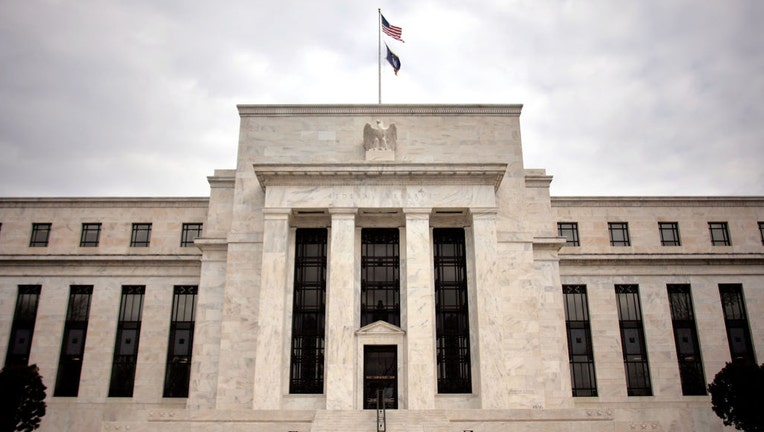Federal Reserve in limbo as tariffs complicate this week's interest rate decision

FILE-The Federal Reserve building is seen in Washington, D.C. (Photo by Chip Somodevilla/Getty Images)
Federal Reserve officials are likely to keep their key interest rate the same on Wednesday, with the Associated Press reporting that officials are set to release quarterly economic projections that are projected to show inflation will accelerate later in 2025, while unemployment could also rise.
Inflation has declined since January, and many economists tell the Associated Press that without the tariffs, the Federal Reserve would likely be cutting its rate even more. However, Federal Reserve officials tell the Associated Press that they want to gauge whether President Donald Trump's tariffs boost inflation and for how long.
RELATED: Fed declines to lower interest rate, ending 3-cut run
The AP reported that economists are speculating that Trump’s tariff hike may result in a one-time increase in prices, as companies look to neutralize the cost of higher taxes. According to the AP, Federal Reserve officials worry that the president’s tariffs could lead to more sustained inflation.
What is the current interest rate?
By the numbers:
According to the Federal Reserve’s preferred measure, inflation is just 2.1%, and the Associated Press reports that this reading indicates that the Federal Reserve’s interest rate should be closer to neutral, below its current level of 4.4%.
Despite President Donald Trump's enforcement of tariffs, the Federal Reserve might face pressure from economists and investors to slash interest rates.
What would higher inflation mean for the key interest rate?
Why you should care:
The idea of higher inflation might lead the Federal Reserve to keep interest rates unchanged or even raise them, while rising unemployment would cause the Feds to cut its key rate. Federal Reserve chair Jerome Powell and Fed officials have emphasized that they are preparing to wait for clearer signs on what direction to go.
According to the Associated Press, when the Federal Reserve lowers its key short-term interest rate, it at times may lead to lower costs for consumer and business borrowing, including for mortgages and car loans. However, financial markets also affect the longer-term interest rates and can keep them high even if the Federal Reserve lowers the shorter-term rate it controls.
RELATED: Fed keeps interest rates unchanged; what this means for you
Despite President Donald Trump claiming the economy is doing well, Trump has argued that an interest rate cut would cause the economy to take off "like a rocket."
The AP noted that Trump also contends that if the Federal Reserve doesn’t cut interest rates, the federal government will pay more interest on its budget deficits, which might grow higher under Trump’s proposed tax budget bill.
The Source: Information for this story was provided by the Associated Press, which cites economists and data from the Federal Reserve. This story was reported from Washington, D.C.

